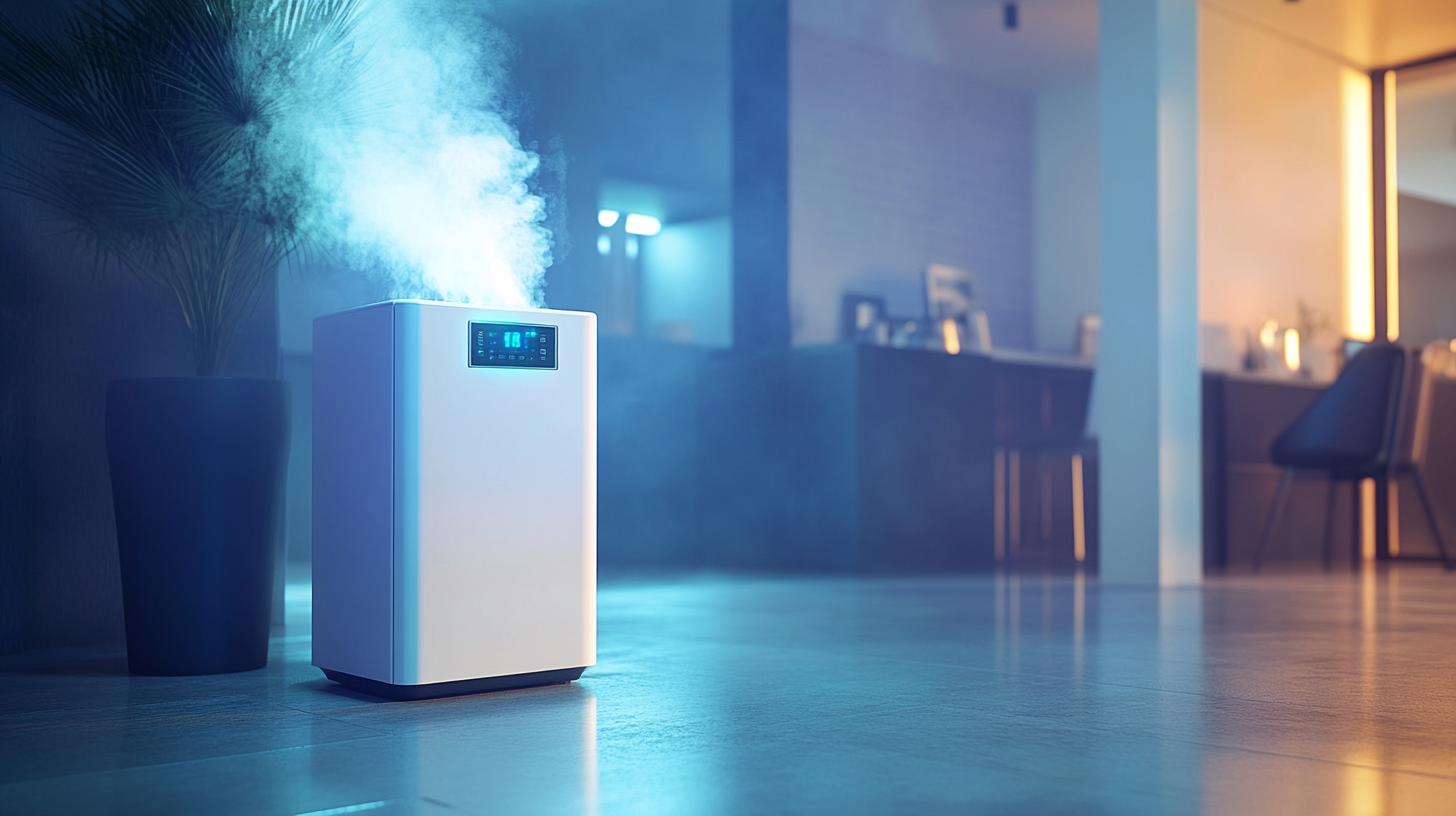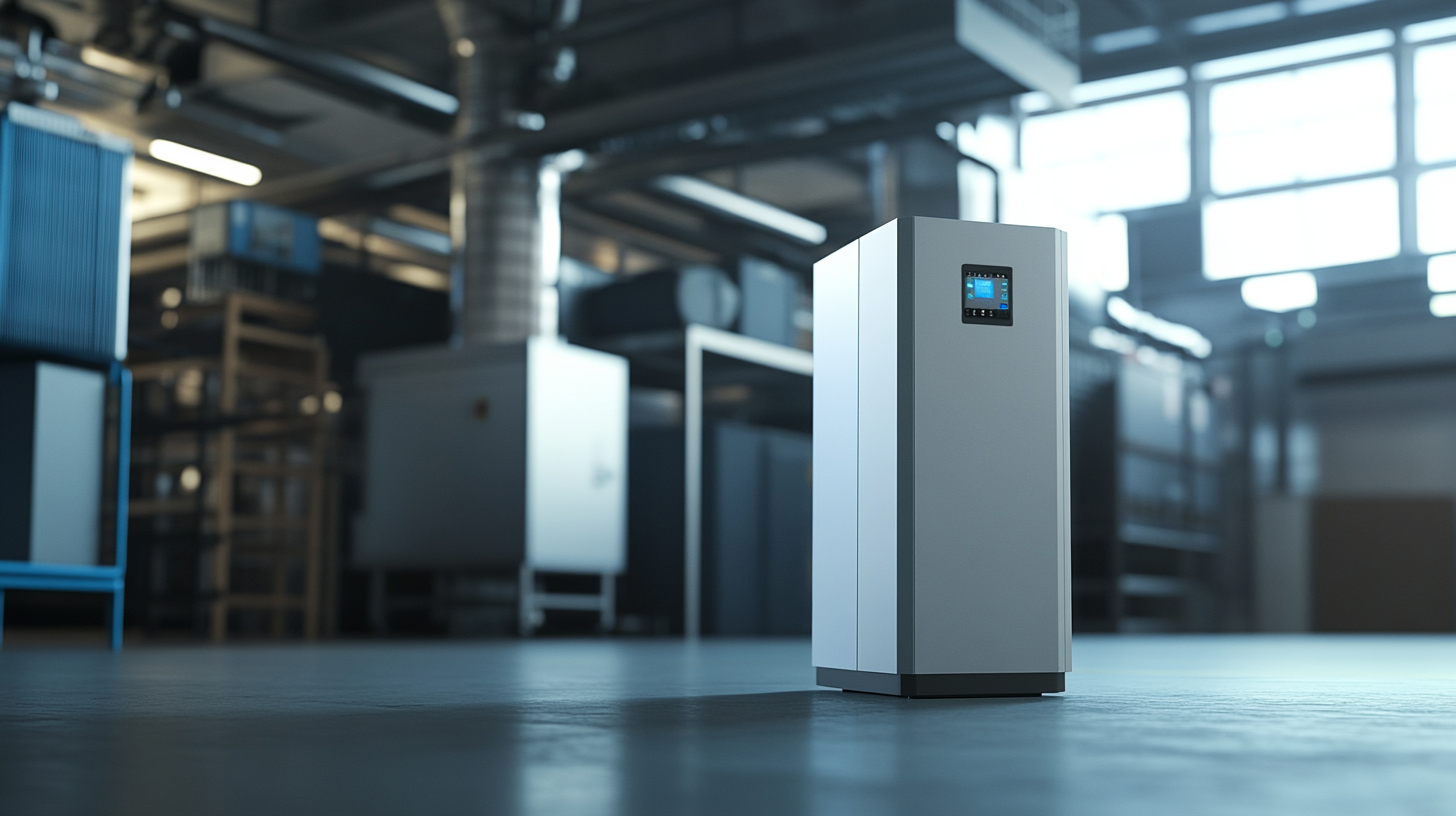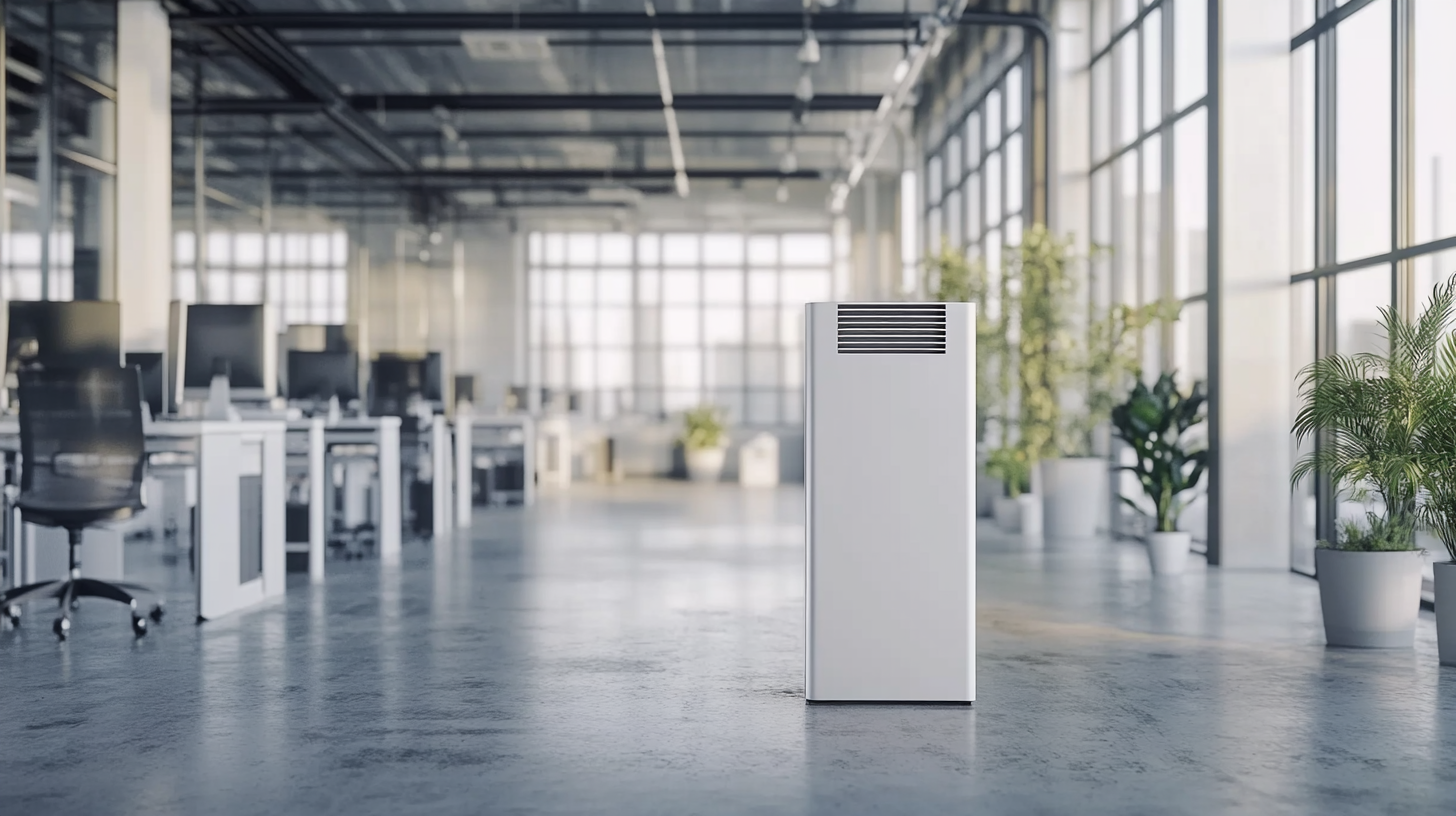
- sales@bjbod.com
- Mon - Sat at 7:00AM to 9:00PM

In today's fast-paced industrial landscape, maintaining the quality of compressed air has become a critical factor in ensuring operational efficiency and product integrity. A Compressed Air Purifier plays a pivotal role in this regard, acting as a crucial filtration system that removes impurities and contaminants from the air used in various applications. Whether you're in manufacturing, food processing, or healthcare, the choice of an appropriate air purification system can significantly influence your processes and bottom line.
Investing in a Compressed Air Purifier not only enhances the quality of your products but also protects your equipment and optimizes energy consumption. With an increasing emphasis on sustainability and regulatory compliance, businesses are now looking to adopt technologies that not only meet their operational needs but also contribute to a cleaner environment. This blog explores seven essential reasons why a Compressed Air Purifier should be at the forefront of your business strategy, ensuring you make an informed decision to elevate your operations and maintain a competitive edge.

Enhanced air quality is vital for any business, and integrating a compressed air purifier into your operations can offer significant advantages. These purifiers not only eliminate impurities but also contribute to a healthier indoor environment, which can lead to improved employee productivity and morale. With the growing awareness of air quality issues, investing in advanced purification systems can set your business apart, demonstrating a commitment to safety and well-being.
Compressed air purifiers work by removing contaminants like dust, pollen, and hazardous particles from the air. This is crucial for maintaining optimal air quality in commercial spaces, particularly in industries where air purity is essential. Recent advancements, such as solar-powered outdoor air purifiers, highlight the innovative solutions available for air quality improvements. These systems are designed to be eco-friendly, further enhancing your corporate responsibility and sustainability efforts.
Moreover, the introduction of improved technologies in air purification can lead to a reduction in health-related absences among employees, which can benefit your bottom line. As studies show, cleaner air not only reduces pollution but also fosters a healthier work environment. By prioritizing air quality with a compressed air purifier, businesses can ensure the well-being of their workforce, enhance operational efficiency, and ultimately drive growth.

In today's business landscape, where cost-effectiveness and sustainability are more crucial than ever, investing in a compressed air purifier can be a strategic move for long-term operational efficiency. Compressed air systems are essential in many industries, and ensuring their cleanliness can lead to significant savings. Research indicates that airborne contaminants can diminish air quality, impacting equipment lifecycle and increasing maintenance costs. By integrating a high-quality compressed air purifier, businesses can reduce the frequency of equipment failures by up to 30%, allowing for smoother operations and less downtime.
Moreover, the trend towards sustainability in business operations emphasizes the importance of adopting cost-effective solutions that reduce environmental footprint while also saving resources. A recent report highlights that nearly 75% of small and medium enterprises (SMEs) are looking for sustainable practices that align with their cost-cutting strategies. Utilizing compressed air purifiers not only lowers the risk of product contamination but also streamlines energy consumption, which can lead to up to a 15% reduction in energy costs.
As businesses navigate rising operational costs and strive to maintain profitability, compressed air purifiers emerge as a viable solution. They not only contribute to cleaner production processes but also align with broader sustainability goals. By making informed decisions around equipment and facilities management, businesses can enhance their resilience against market uncertainties, ultimately driving both economic and environmental benefits.
In today's industrial landscape, compliance with health regulations and industry standards is paramount for ensuring a safe working environment and maintaining a competitive edge. A compressed air purifier plays a critical role in achieving these objectives. Industries such as food and beverage, pharmaceuticals, and electronics are heavily monitored due to stringent guidelines. For instance, the FDA mandates that compressed air used in food production must be free from harmful contaminants, a requirement that underscores the importance of air purity in preventing contamination and ensuring product safety.
A study by the Compressed Air and Gas Institute (CAGI) indicates that over 70% of industrial air quality problems stem from contaminated compressed air systems. Contaminants such as moisture, oil, and particulates can not only compromise product quality but also lead to costly downtime and fines related to regulatory non-compliance. Investing in a reliable compressed air purifier helps businesses meet or exceed industry standards, which often require specific cleanliness levels for compressed air. Reports suggest that companies adhering to these standards can see a 15% reduction in waste and losses, impacting profitability positively.
Furthermore, maintaining compliance is not just about meeting regulations but also about protecting employee health. According to OSHA’s guidelines, ensuring air quality can significantly reduce the risk of workplace illnesses related to respiratory issues. Companies that utilize advanced compressed air purification technologies often report improved employee productivity and morale due to a healthier working environment. By prioritizing air quality, businesses not only adhere to necessary regulations but also foster a culture of safety and efficiency, ultimately benefiting their bottom line.

In an environment where contaminants are a pressing concern, businesses increasingly recognize the importance of investing in compressed air purifiers. These devices play a crucial role in improving equipment longevity by effectively reducing harmful particles and pollutants present in the air. Recent studies indicate that air quality directly impacts machinery performance and lifespan; contaminants like dust and chemical vapors can lead to increased wear and tear, resulting in costly repairs and downtime.
The link between air quality and health extends beyond just equipment. According to the 2024 Sustainability & Social Impact Report, organizations are more aware than ever of their environmental footprint, especially regarding air pollution and its effects on employee well-being. The report highlights that cleaner air contributes not only to better machine efficiency but also to healthier work environments, thus boosting productivity and employee morale.
Moreover, with climate change exacerbating extreme weather events, the incidence of airborne contaminants is likely to rise, potentially impacting both health and equipment. A proactive approach to air purification can mitigate these risks. By addressing air quality issues through advanced technologies, businesses can further ensure their operational resilience while embracing sustainability initiatives. Investing in compressed air purification is therefore not merely a technical upgrade but a strategic decision that aligns with broader environmental and health objectives.
In today’s fast-paced work environment, the quality of air in the workplace plays a crucial role in employee productivity and well-being. Investing in a compressed air purifier can significantly enhance the air quality, ensuring a healthier atmosphere for your team. Clean air not only reduces harmful pollutants but also minimizes allergens and irritants that can lead to respiratory problems and decreased focus. When employees breathe easier, they can dedicate more energy to their tasks, ultimately boosting overall productivity.
Moreover, the psychological benefits of clean air cannot be overstated. A fresh and unobstructed air supply can improve mood and reduce stress levels among employees. When workers feel comfortable and healthy in their environment, they are more likely to engage creatively and collaboratively. This fosters a positive workplace culture where employees feel valued and motivated, directly correlating with increased job satisfaction and retention rates.
In addition to enhancing productivity and employee morale, a compressed air purifier can serve as a proactive measure for workplace wellness. With the ongoing concerns surrounding air quality and its link to various health issues, employers have a responsibility to prioritize the well-being of their workforce. By providing a clean air environment, businesses not only demonstrate a commitment to their employees’ health but also create a foundation for long-term success and reduced healthcare costs associated with poor air quality.